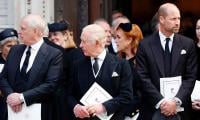Bare-knuckled politics a disservice to democracy
Modi’s bellicosity is keeping the cauldron boiling on the LOC. Abid Sher Ali’s loathsome comments on PPP leadership is making politics as a bare-knuckled affair. One wonders whose side he is anyway. His contemptible and condemnable foolhardiness is vitiating the political environment against PML-N government. His tongue is inflicting wounds that may not heal any time soon. If the PML-N leadership does not give him shut up call sooner than later it will be construed as its endorsement. It is understood that the prime minister has already reprimanded him with strict instructions to zip his lose lips forthwith.
An insane supporter is worse than a sworn opponent. Abid’s unsavoury language perfectly exemplifies the narrative. Political opponents should be respected, not derided
PML-N leaders should rather be beholden to the PPP which had bailed out their government during testing times, when it was at the brink of falling apart, although PPP did it in pursuance of its ideological commitment to democracy. Had the PPP simply looked the other way it would have drawn the doomsday for the government without an iota of doubt. But PPP could not imagine jettisoning the legacy of its founding father who had nurtured democracy with his blood. This commitment favoured PML-N government decisively. Resultantly democracy was on track that mattered the most to the PPP leadership as political heir to the legacy of the Great Bhuttos.
Democracy was always and will be non-negotiable for PPP. It is a sacrosanct thing that could not be sacrificed at the altar of party politics. It was this unique perspective of PPP politicking throughout that had earned it the unblemished distinction of genuinely sole representative voice of the liberal/democratic forces in the country. This image was intact and required to be harnessed pro-actively to reclaim the dedicated and motivated constituency containing liberal/democratic forces of the country. The PPP’s new leadership was determined to mobilise it just like that. Chairman Bilawal Bhutto had all the charisma and qualities to bring them back in the Party fold by reiterating that Party’s manifesto would reflect their aspirations cobbled with undertaking of its implementation to address the problems of the poor people holistically. Chairman’s assurance would definitely spread far and wide the inspirational rallying call among them because their ideological proximity to the PPP ideology is deep rooted. Their emotional attachment with Bhuttos is eternal.
PPP is an experienced, mature and ideological Party that always resisted the provocation and intrigues against the continuity, promotion and consolidation of democracy. PPP could not afford to abandon democracy regardless of who was the resultant beneficiary as precisely once put in by former Prime Minister Syed Yusuf Raza Gilani. It always kept the flag of democracy hoisted even during the most ferocious dictatorship of Zia-ul- Haq and General Musharraf. Ironically, other sought redemption in refuge. It played leading role in all the movements against dictators and dictatorships and succeeded in restoring democracy which was the shining example of the success of democratic struggle for the empowerment of the abandoned and abused poor people. The struggle was on to consolidate the gains. The dawn of democracy and its continuity today largely owes it to the PPP because it stood up and resisted the anti-democratic forces and did not budge in to their tyrannical tactics. If the PPP had remained indifferent to such threats the political system would have gone with the wind long ago what to talk of far-fetched cry of its continuity and consolidation.
PPP is, undoubtedly, an anti-establishment Party. It always came to power through vote. The Establishment’s aversion to the PPP was well documented. Its reckless interference to deny the PPP electoral victory was part of the Supreme Court judgment in Asghar Khan case. The invisible elements were in collusion with its progenies to sack the PPP elected governments despite the fact that it had majority in the National Assembly. However, the PPP deserved credit for not ever seeking the support of the Establishment to ascend to the zenith of power. It also never bit the bait to disrupt democracy and democratic process in the country as a quid pro quo to enter the corridors of power. Needless to emphasise, its commitment to democracy was above all other considerations, and its track record was an enviable testimony to reality.
In the present political context, PPP has announced to launch protest movement throughout the country from December 27 if its four demands are not accepted. Its four demands are: a) Reconstitution of Parliamentary Committee on National Security ,b) appointment of full time Foreign Minister), c ) enact Panama Paper Bill of PPP and ,d) Asif Ali Zardari’s resolution on CPEC be implemented.
PTI Vice Chairman, Shah Mahmood Qureshi’s statement in Sindh recently to the effect that his Party would consider joining the PPP protest movement was a surprise by any criterion. It was indeed a frank recognition of the fact on their part that no single Party could force the government to mend its ways and the PTI’s futile exercise in this regard was a case in point.
This new found pragmatism of PTI had taken many by surprise who were still in a state of disbelief expecting rejection by the PTI Chief sooner than later. Let us hope that setbacks suffered so far should have made him wise in favour of collective endeavours as against the solo-flight. It was good thinking at the level of second tier of leadership. It should earnestly try to convince the chief not to exercise his veto power to overrule the wisdom of collaborating with other political forces aimed at consolidating the political system not decapitating it.
The government has not given yet any clear indication so far about the acceptance of four demands although Ishaq Dar believed that the demands of PPP were not outlandish in nature. As a matter of fact, the acceptance of the demands would buttress the civilian authority which is the ultimate objective of any elected government. It would also address the bone of contention of civil –military relations. The reconstitution of Parliamentary Committee on National Security would bring in the mechanism of ‘Parliamentary Oversight’ in the domains of foreign and security policies of the country those had become an increasing liability now. The foreign/security policies were in practice the no-go areas for the elected government and the Parliament.
The security/ foreign policy woes of Pakistan are likely to continue to multiply so long as these are not made subject to ‘Parliamentary Scrutiny’. The track record of this relentless pursuit to the exclusion of the Parliament is depressing by any measure, and at present facing the climax in the shape of diplomatic isolation as majority of neighbouring countries is on the opposite side of the equation. The civilian government should also resist yielding to enforced abdication. Parliament’s failure not to formulate foreign and national security policy amounts to betrayal of the trust of the people who have given them the mandate to exercise the authority on their behalf for the promotion of national interests in transparent manner.
The government should seize the moment and reconstitute the Parliamentary Committee on Security as it would amount to reclaiming the space that belonged to it as per the Constitution. COAS Gen Qamar Javed Bajwa, should make history if he makes the institution operate within the ambit of the Constitution. If he succeeds he will be eloquently remembered in the history as the one and only. He may seek guidance to make up his mind from the words of the Quaid-i-Azam at Staff College Quetta in 1948 underscoring the importance of the allegiance to the Constitution in letter and spirit.
The demand of appointment of full time foreign minister should be welcomed by the prime minister because it may help in reversing the vicious cycle of diplomatic isolation that is being spearheaded by India. One fails to understand as to what are the factors that have been hindering the prime minister not to induct a full time foreign minister. The demand of implementation of resolution on CPEC evolved after political consensus by Asif Ali Zardari is going to address the reservations of the smaller provinces who have been alleging it as the China Punjab Economic Corridor.
The government should immediately take the political initiative and hold dialogue with the stakeholders to find the pathway out in order to keep all on the right side eliminating the causes that breed street politics and with that starts the process of destabilisation in the country.
PPP’s opposition of taking the Panama Papers scandal to the Supreme Court is understandable because it believes in the supremacy of the Parliament and therefore firmly of the view that the accountability of the Leader of the House should be carried out in the Parliament rather than in the Supreme Court. PPP believes that Parliament is the mother of all institutions and therefore it must not be forced, by design or default, to lend its space to other institutions. The continuity of this propensity may lead to weakening the Parliament. It is for this reason that the PPP is in favour of accountability of the prime minister at the parliamentary forum instead of the judicial forum. Those who are in favour of the judicial forum will understand its far-reaching implications in due course.
[Akram Shaheedi (PPP Media Cell) muhammadshaheedi@ yahoo.com]
-
 Protest Held Outside Andrew Mountbatten-Windsor Home
Protest Held Outside Andrew Mountbatten-Windsor Home -
 NASA Targets March 6 For Launch Of Crewed Mission Around Moon Following Successful Rocket Fueling Test
NASA Targets March 6 For Launch Of Crewed Mission Around Moon Following Successful Rocket Fueling Test -
 Conan O'Brien Addresses Rob Reiner's Tragic Death After Explosive Clash At Christmas Bash
Conan O'Brien Addresses Rob Reiner's Tragic Death After Explosive Clash At Christmas Bash -
 Princess Eugenie, Beatrice's Major Plan With King Charles Revealed After Andrew Arrest
Princess Eugenie, Beatrice's Major Plan With King Charles Revealed After Andrew Arrest -
 Prince William Out Of Trouble As King Charles Faces Andrew Scandal Fallout
Prince William Out Of Trouble As King Charles Faces Andrew Scandal Fallout -
 Sir Paul McCartney Gets Honest About Whether He Broke Up The Beatles
Sir Paul McCartney Gets Honest About Whether He Broke Up The Beatles -
 Brad Falchuk, Gwyneth Paltrow's Husband, Opens Up About Eric Dane's 'Famous Last Words'
Brad Falchuk, Gwyneth Paltrow's Husband, Opens Up About Eric Dane's 'Famous Last Words' -
 Sarah Ferguson Leaves Andrew 'furious' With Stunning Move: 'It's All-out War Now'
Sarah Ferguson Leaves Andrew 'furious' With Stunning Move: 'It's All-out War Now' -
 Greenland Ice Sheet Acts Like ‘churning Molten Rock,’ Scientists Find
Greenland Ice Sheet Acts Like ‘churning Molten Rock,’ Scientists Find -
 Sydney Sweeney Pays Tribute To 'Euphoria' Co-star Eric Dane After His Death: 'Forever Will Love You'
Sydney Sweeney Pays Tribute To 'Euphoria' Co-star Eric Dane After His Death: 'Forever Will Love You' -
 Kayla Nicole Reveals Surprising Reason Behind Separation From Travis Kelce
Kayla Nicole Reveals Surprising Reason Behind Separation From Travis Kelce -
 Andrew Made Major Demand To King Charles Before Arrest
Andrew Made Major Demand To King Charles Before Arrest -
 Political Tensions Steal Spotlight At Berlin Film Festival Closing Ceremony
Political Tensions Steal Spotlight At Berlin Film Festival Closing Ceremony -
 King Charles In Hot Water After Andrew Arrest: ‘Step Down!’
King Charles In Hot Water After Andrew Arrest: ‘Step Down!’ -
 Space-based Solar Power Could Push The World Beyond Net Zero: Here’s How
Space-based Solar Power Could Push The World Beyond Net Zero: Here’s How -
 Kate Walsh Remembers Her 'Grey’s Anatomy' Co-star Eric Dane Following His Death At 53
Kate Walsh Remembers Her 'Grey’s Anatomy' Co-star Eric Dane Following His Death At 53



